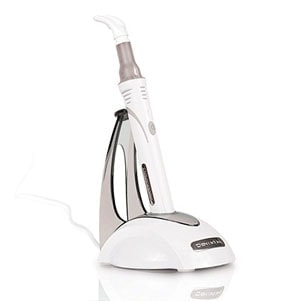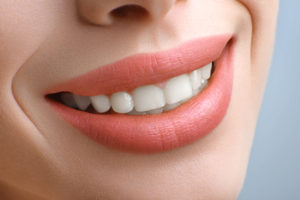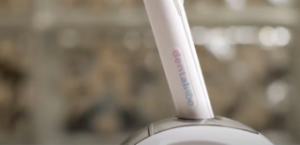Mouth Guards are important to use for oral safety during sports play and during sleep. Mouth guards have been around since the 1920’s preventing injuries and damage taken by professional sport players. More recently, Mouth Guards are being used for people who suffer from anxiety and Bruxism.
What Is A Mouth Guard?
Mouth Guards are protectors for your mouth. They cover your teeth and gums and help to lessen and prevent injuries to your:
- Teeth
- Jaw
- Temporomandibular Joint
- Dental Arches
- Lips
- Gums
There are different applications for Mouth Guards, but mostly they are used for the prevention of injury/damage during activities like sports. Like wearing a crash helmet for your mouth. They can also help to protect your mouth during sleep.
Mouth guards can be applied and used for different medical treatments such as:
- Temporomandibular Joint Dysfunction (TMD)
- Bruxism – the grinding and clenching of teeth
- Dental procedures like tooth bleaching
- The treatment of sleep apnea
What Types Of Mouth Guard Do I Need?
There are three types of mouth guards available at the moment.
They are:
- The type you wear to protect your mouth from trauma and injury playing sports.
- The type you wear to prevent teeth grinding and clenching, either while you are asleep or have anxiety while awake.
- The last is a tool used called a Blue Mouth Guard, used to whiten teeth makes use of a Blue LED Light as an activator for hydrogen peroxide which is a the main cleaner in the teeth whitening process.
The kind of mouth guard you will need, will depend on its use.
Does Wearing A Mouth Guard Lower Injuries In Sports?
Injuries are lower in sports that enforce wearing a mouth guard.
The threat of injury to your mouth from sports is high and many accidents are prevented every year from the continued use of mouth guards as personal safety gear. Unfortunately many more injuries could have been prevented by the use of a mouth guard during play as children.
When Should My Child Wear A Mouth Guard?
Knowing when your child should wear a mouth guard is just as important as them wearing one. There is always a risk of injury no matter what we do sometimes, but it’s a safe to say that during sporting events when they are a required safety is important to know
Do Children Have To Wear A Mouth Guard To Play Sports?
Certain sports like football, require children to wear a mouth guard in order to play. Thanks to mouth guards protecting children’s mouths many incidents and damages have been averted. It’s always better to be on the safe side when it comes to possibly becoming injured accidentally during activities that carry a high risk.
Do They Make Mouth Guards For Children?
Absolutely, They make mouth guards for children of all ages. Children are more prone to injury and accidents and play the same sports that us adults do. Even the ones that come with higher chances to get hurt. Children’s mouth guards are sold at all the same places that you can find adult mouth guards. Protecting your child mouth is important. Making sure that you child can grow up with a happy healthy smile.
Children At Play Have Higher Oral Injuries
Children playing non sanctioned sports are at higher risk but rarely are made to wear mouth guards outside of sanctioned sporting events
Kids are prone to having accidents, whether from being less coordinated or from trying radical stunts, more children injure their mouths during play. Doing things like riding their bikes. Baseball and basketball also carry risks but mouth guards are not enforced as much in pee-wee and Junior leagues as they are in high school or College.
What Type Of Play Carries The Most Risk To Your Kids Mouth?
Children’s Antics
Did you ever play “no hands” while riding your bicycle with friends or try to pedal your bike while sitting backwards on the seat or on the handlebars?
Children testing the limits of what they can do is where some of the most unexpected injuries to your mouth and other things happen.
Parks and playgrounds are the number one place for mouth injuries. With other children in close proximity excited and expending their energy, also risks of falling, being pushed, inappropriate use of play equipment and other hazards that can be hard to know are coming, like a kicked ball that misses its target.
Jumping on a trampoline alone or with other children
It’s simple fun and great exercise but trampoline bouncing causes major mouth injuries every year.
When children:
- Doing stunts with other children on the trampoline or with other kids nearby get kicked in the face,
- Knocking into or accidentally head butting each other while jumping or landing on top of each other.
Skating carries large risks as well of injuries to the mouth. Falling and tripping, landing wrong, and running into things. Yet most children never wear protective gear other than helmets and knee pads, and injuries result from it every year.
From bicycles to dirt bikes, every year there are plenty of missing, broken, and chipped teeth. Faces slamming into a set of handlebars can even break a child’s jaw. Riding under low branches that can catch you in the face is a risk out on the trails. Trying to jump a bike off of a homemade ramp, or even something as small as a curb has led to E.R. visits every year.
What Kinds Of Mouth Guards Can I Get?
There are three kinds of mouth protectors:
Stock Mouth Protectors
Come fully formed and pre-packaged available for sale at most sporting goods and pharmacy locations. They are not adjustable and are bulky which restricts breathing so most health care professionals do not recommend them.
Boil And Bite Mouth Guards
These are also sold at many stores but offer a better fit and better protection for your mouth. They are boiled to be made soft and then placed inside the mouth to be moulded using pressure from your tongue and teeth. Gaining a custom fit.
Custom fitted mouth guards
Are designed individually and made in a dental office or professional laboratory your dentist approves of. Your dentist will first make a molding of your teeth and then a mouth guard will be made using the molding the dentist constructed of your mouth’s impression, for a perfect fit.
Do Mouth Guards Have Different Names?
Yes. It depends on what your mouth guards are used for, they can have many different names they go by in different sports genres and also in different geographical regions but they are all essentially the same thing.
Such as :
- Mouth Protector
- Mouth Piece
- Gum Shield
- Gum Guard
- Night Guard
- Occlusal Splint
- Bite Splint
- Bite Plane
- Athletic Guards
- Sports Guards
- Blue Guards
When Should I use A Mouth Guard?
Mouth Guards, should be used whenever :
- Playing during any high-contact or strenuous sport.
- Doing any activity where you’re teeth are grinding or clenching.
- For better oxygen intake during strenuous activity or sleep.
- Whenever your health care provider deems it necessary.
Can I Wear A Mouth Guard With Braces?
Yes. If you wear dental braces then you need to protect your mouth more carefully than other people without dental braces. Damaged Braces can inflict harm to more than just your teeth. Damage can also occur to your cheeks, gums, tongue, and lips. (Inside and out.)
It is really important for dental brace wearers, to have proper fitting mouth guards so they do not end up causing damage to the braces themselves by letting a loose fitting mouth guard continue to rub against your important dental alignment apparatus.
What Kind Of Mouth Guard Is Best For People With Braces?
The best kind of mouth guard for a person with dental braces is always a custom fit mouth guard crafted by your dentist, or oral care provider. Though, if time is of the essence and you must buy a mouth guard, then your best option for a mouth guard would be the boil and bite variety. They mold and conform to your mouth and are less loose when worn. They have safe to use moldings that fit nicely over dental braces.
Do They Have Flavors For Mouth Guards?
Yes! Sports mouth guards came in a variety of different flavors now to make holding one in your mouth more palatable. Here is a small sample list of flavored mouth guards to choose from:
- Grape
- Fruit punch
- Strawberry
- Bubble Gum
- Cotton Candy
- Sherbert
- Orange
- Mint
- Lemon
- Cinnamon
- Pina Colada
- Cookie Dough
- Vanilla
- Chocolate
Your mouth is more likely to clamp down onto something that tastes like food as opposed to something that tastes like plastic and feels like an invasion. The intense flavors also help to keep your mouth hydrated. When your mouth becomes dry from running and breathing heavy, a nice blast of flavor will help to get your saliva flowing again and hydrate when you need it most. .
>> Not all mouth guard brands come in all of these flavors. Check your local sporting good store for the different brands that carry your favorite flavors or check them out here on Amazon. <<
Why Do Mint Flavor Mouth Guards Make Your Mouth Feel Cooler?
The cool mint flavor is best summed up as a “thermal illusion.” The Illusion happens when your sensory receptors are fooled into believing something cold is in your mouth.
Mint has a certain stimulant that opens up a kind of lock on an ion channel of a cell, which changes the electrical charge within the neuron.
The menthol from mint oil fits one of these sensory locks, and allows calcium and sodium ions to enter the cell.
When the electrical charge within the neuron changes and the information is sent to the central nervous system, It then signals to the brain to feel the perception of cold.
How Do I Get A Mouth Guard?
Normally mouth guards can be purchased :
- At your local pharmacy
- At Your local grocery store
- At your local sporting goods store
- Online through specialty stores like Amazon
Mouth guards can be given by :
- Athletic directors
- Health care professionals
Mouth Guards Can Be Made For You By :
- Dentists, orthodontists and other dental professionals
Using special molds made out of thermoplastic materials, that start out soft, conforming to the shape of your mouth and then become solid within a short amount of time, called an impression which is then used to cast a molding for your mouth guard that will be a tight fit. Not loose.
Why Don’t You Want A Loose Fitting Mouth Guard?
A loose mouth guard can become a source of pain very quickly. Loose fitting mouth guards, will rub your gums and teeth causing things like:
- Blisters
- Abrasions
- Cuts
- Tooth Wear
- Dry or cracked lips
Why Your Mouth Guard Should Not Fit Too Tightly?
A mouth guard that fits too tightly can have adverse effects as well
Like:
- Sores
- Blisters
- Chafing
- Bruising
- Tenderness and Pain
- Poor gum or lip circulation circulation
How Do I Clean My Mouth Guard?
Cleaning your mouth guard is simple.
Just follow these step by step instructions:
- After removing your mouth guard rinse with warm water.
- Using your regular toothbrush or one you have chosen just for the purpose of brushing your mouth guard, using toothpaste or baking soda, gently brush your mouth guard thoroughly.
- Rinse with warm water.
- Now you can either :
- Gently pat dry using a cloth rag or towel and leave them set on a dry surface, (like a cloth) in a dry place overnight before storing them in the morning or …
- Place them in a glass or bowl with warm water and a denture cleaning product (like Efferdent), and allow to soak overnight or …
- Just set your mouth guard out to dry for the evening on a dry surface, in a dry place. Allowing them to dry naturally and ensuring that bacteria does not begin to build on them.
It’s important that you do not store your mouth guards immediately after washing. You’re mouth guard could become a breeding ground for different bacteria, yeast, and molds, making you sick. The importance of the proper care and maintenance of your mouth guard cannot be overstated.
















